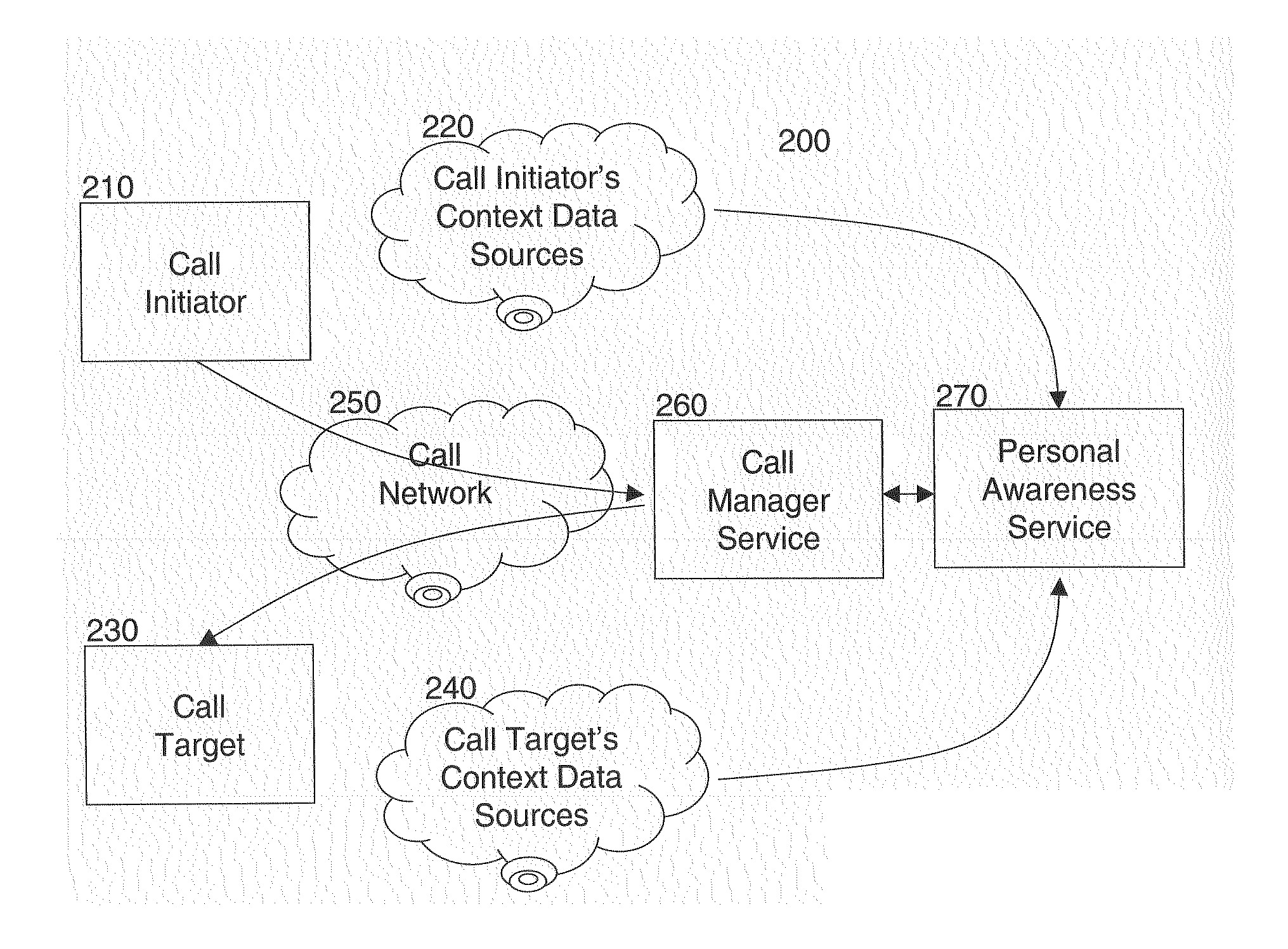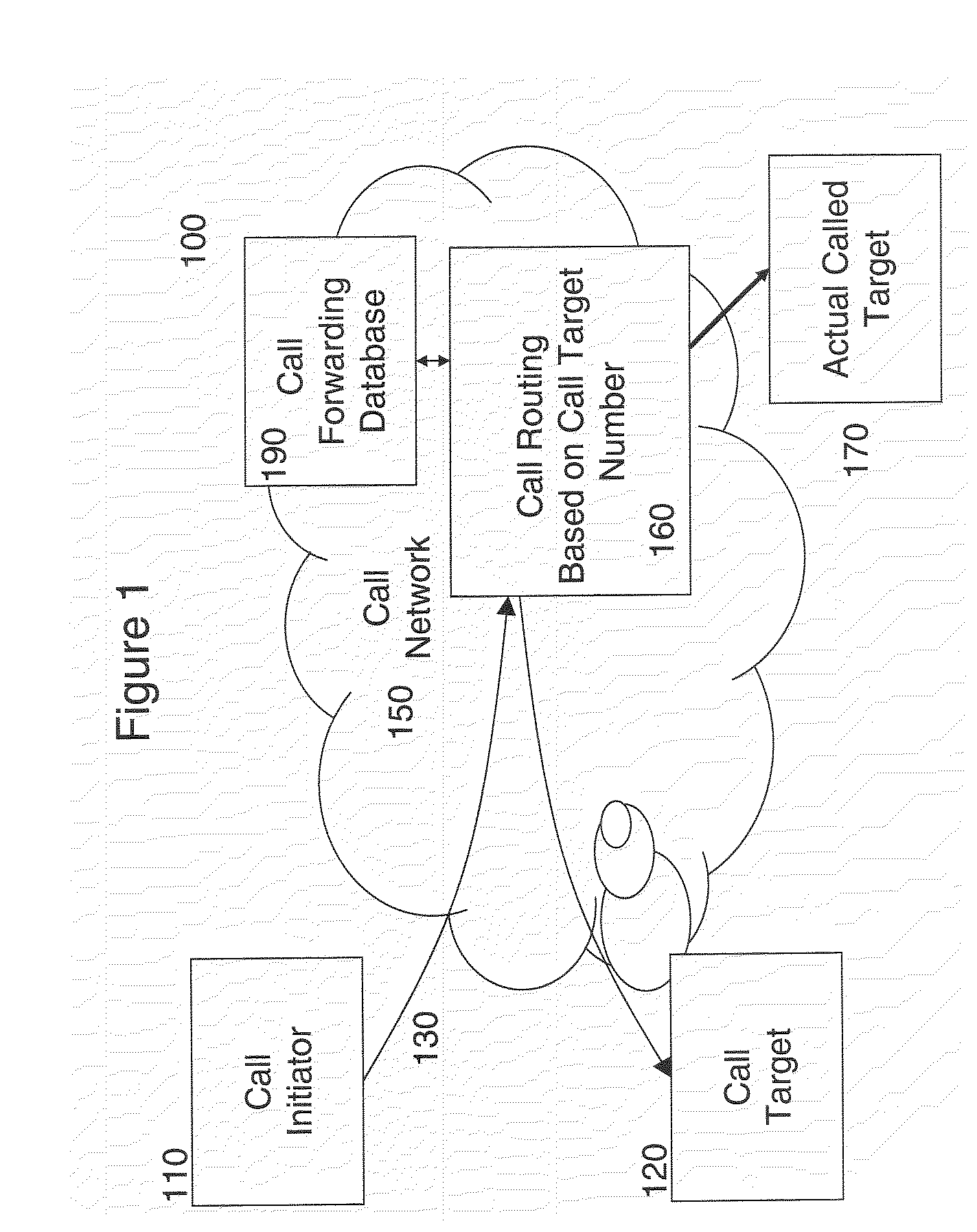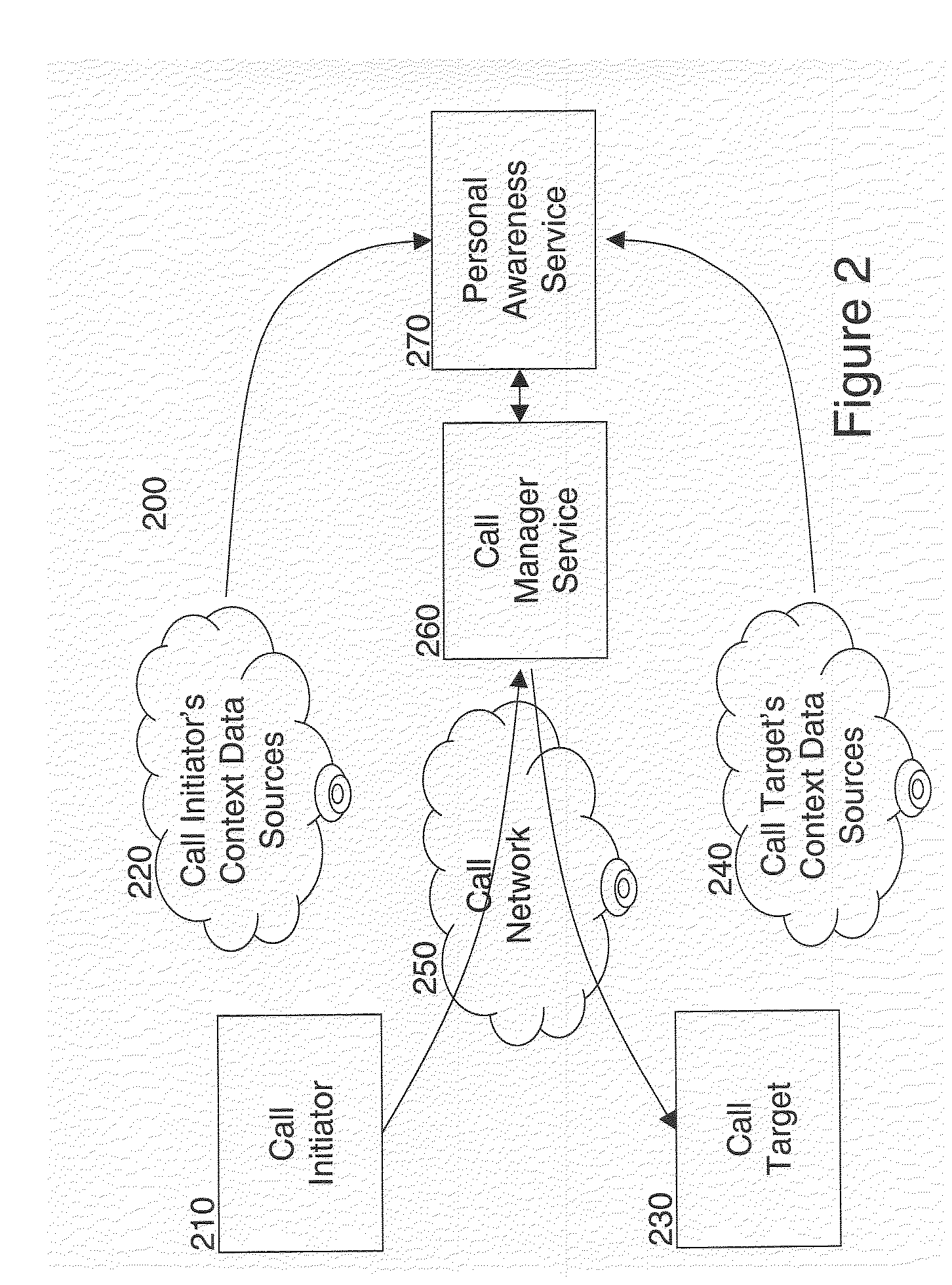Method, system and service for achieving synchronous communication responsive to dynamic status
- Summary
- Abstract
- Description
- Claims
- Application Information
AI Technical Summary
Benefits of technology
Problems solved by technology
Method used
Image
Examples
example 1
[0032] A cell phone user (calling party) in the car wants to join his or her currently calendared conference call. The calling party doesn't know the number. Calling party dials their personal number, and is connected to the call. The inventive system here has received the indication that the calling party has dialed in, has retrieved calendar information, has analyzed the calendar information and determined that the calling party is supposed to be attending a voice conference call, and has initiated the conference call (including entering the password).
example 2
[0033] A cell phone user (calling party) has a meeting scheduled with a colleague but is late. The calling party doesn't know the colleague's number. The calling party dials their personal number, and is connected to the call. The inventive system here has received the indication that the calling party has dialed in, has retrieved calendar information, has analyzed the calendar information and determined that the user is supposed to be meeting a specific colleague, has accessed context (e.g. presence information) related to the colleague, has determined a method of reaching the colleague for a synchronous communication, and has initiated the synchronous communication.
example 3
[0034] A repairman (calling party) is out in the field and is about to finish his job. He dials his number and is connected to his next appointment. The repairman doesn't know who the appointment is with. The inventive system here has received the indication that the calling party has dialed in, has retrieved assignment information (eg to-do list), has analyzed the assignment information, determined that the number of the next assignment permissible for this time of day (eg if homeowner is only there between 11 and 1, and the time of day is now 12:45, indications are that this one should be skipped and the repairman directed to the next assignment), and has initiated the call.
PUM
 Login to View More
Login to View More Abstract
Description
Claims
Application Information
 Login to View More
Login to View More - R&D
- Intellectual Property
- Life Sciences
- Materials
- Tech Scout
- Unparalleled Data Quality
- Higher Quality Content
- 60% Fewer Hallucinations
Browse by: Latest US Patents, China's latest patents, Technical Efficacy Thesaurus, Application Domain, Technology Topic, Popular Technical Reports.
© 2025 PatSnap. All rights reserved.Legal|Privacy policy|Modern Slavery Act Transparency Statement|Sitemap|About US| Contact US: help@patsnap.com



